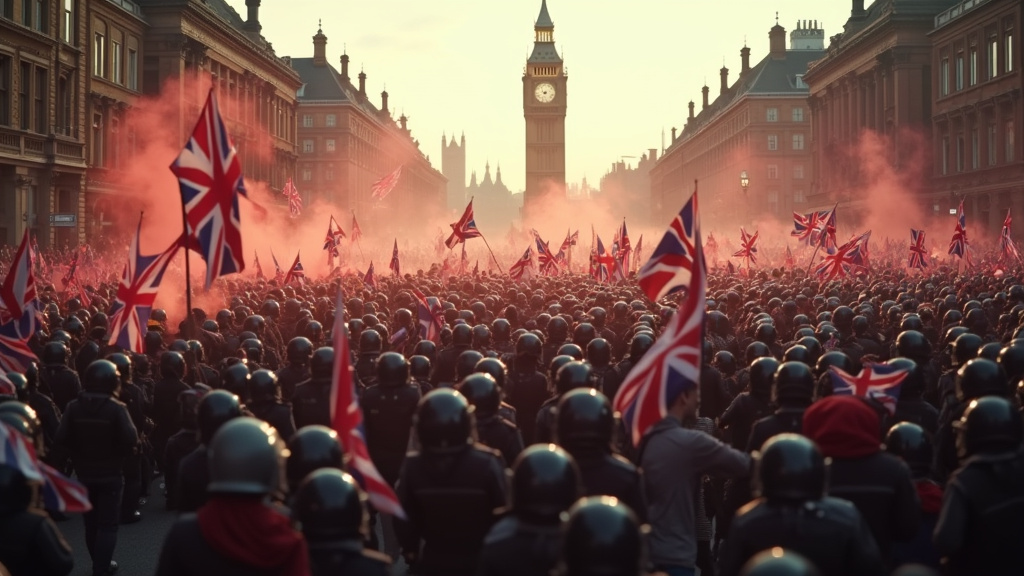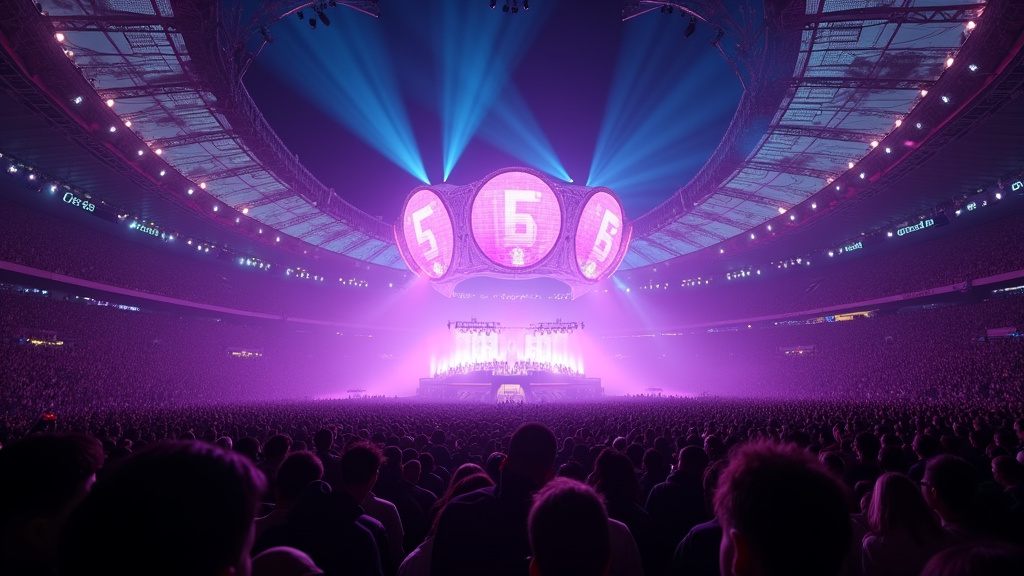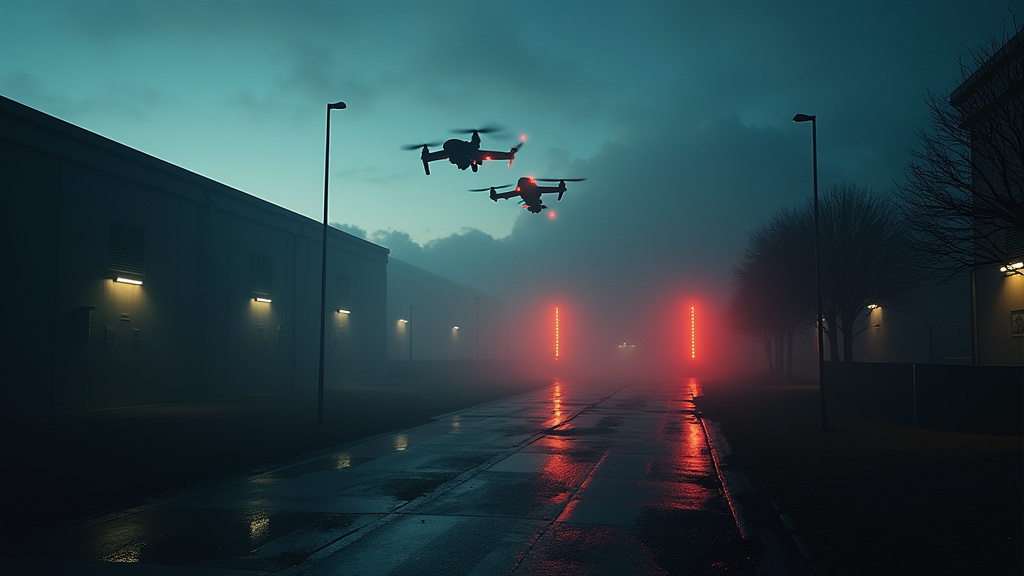Central London became the scene of significant unrest on Saturday, September 13, 2025, as a colossal far-right rally, dubbed “Unite the Kingdom,” drew an estimated 110,000 to 150,000 participants, making it one of the largest nationalist demonstrations in recent UK history. Organized by prominent far-right activist Tommy Robinson, the event, officially billed as a “festival of free speech” and a defense of British heritage, quickly devolved into violent clashes with police forces tasked with separating the massive crowd from a considerably smaller counter-protest.
Unprecedented Turnout and Rally Aims
The “Unite the Kingdom” march saw participants converge on London from across the country, arriving by train and coach. The sheer scale of the turnout significantly surpassed expectations, with police estimating the numbers to be between 110,000 and 150,000. Marchers carried Union Jack and St. George’s Cross flags, voicing strong anti-immigrant sentiments under slogans such as “stop the boats” and “send them home.” While organizers framed the event as a platform for free speech, reports and speeches from the rally highlighted nationalist themes and amplified conspiracy theories.
Violent Clashes and Police Injuries
The rally, which extended from Stamford Street to Whitehall, was marred by conflict. A small group of protesters became unruly, engaging in physical altercations with police officers who were attempting to maintain order and keep the marchers separate from approximately 5,000 counter-protesters participating in a “March Against Fascism” organized by Stand Up to Racism. According to the Metropolitan Police, officers faced “unacceptable violence,” enduring physical assaults including kicks, punches, and being struck by projectiles such as bottles and flares. In total, 26 police officers were injured, with four sustaining serious injuries that included broken teeth, a possible broken nose, a concussion, a prolapsed disc, and a head injury. Reinforcements, including officers equipped with helmets and riot shields, were deployed to manage the situation. At least 25 arrests were made on charges including affray, violent disorder, assaults, and criminal damage, with police indicating that further investigations would lead to more arrests.
Prominent Voices and Political Reactions
The rally featured several high-profile international figures. Elon Musk, owner of X, addressed the crowd via video link, criticizing the UK government and speaking of an “erosion of Britain with massive uncontrolled migration.” French far-right politician Éric Zemmour invoked the “great replacement” conspiracy theory, stating that European peoples were being replaced by those from the south. A moment of silence was also observed for the recently slain US conservative activist Charlie Kirk. The violence and rhetoric at the rally drew swift condemnation. Home Secretary Shabana Mahmood vowed that those involved in “criminal activity” would face the “full force of the law.” Prime Minister Keir Starmer stated that Britain would “never surrender” its values to far-right protesters who use national symbols for violence and intimidation, while also affirming the right to peaceful protest.
Broader Context of Rising Tensions
The “Unite the Kingdom” march occurred against a backdrop of heightened tensions surrounding immigration in the UK. The summer had been marked by numerous protests, some of which turned violent, outside hotels housing asylum seekers across the country. This trend, coupled with the rise of anti-immigrant political parties like Reform UK, underscored a significant public debate and division over migration policies and national identity. The rally’s focus on “sending them home” and accusations of an “invasion” reflected sentiments seen in these earlier localized protests.
Ongoing Investigations and Future Implications
As London recovers from the day’s events, the Metropolitan Police have initiated a post-event investigation to identify all individuals involved in the disorder. The scale of the rally and the associated violence underscore the growing influence and mobilization of far-right groups in the United Kingdom. This prominent news event is likely to fuel further debate on immigration control, national identity, and the challenges of managing public order during highly charged political demonstrations. The significant police presence and the arrests highlight the ongoing struggle to balance freedom of expression with public safety amidst escalating social tensions.





